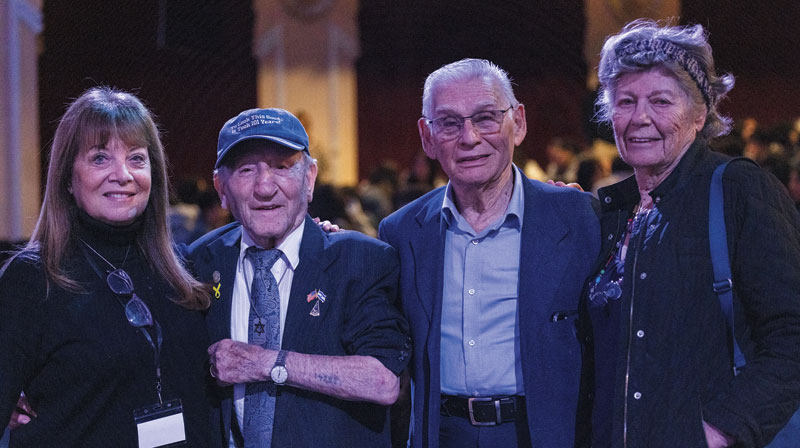Tel Aviv police have arrested the director of the Israel Kabbalah Centre, following complaints that he had fraudulently exploited a dying cancer patient and her husband.
According to Israel media reports, the director, Shaul Youdkevitch, extracted more than $60,000 from Leah Zonis and her husband Boris, assuring them that the center would help cure her cancer.
The incident is the latest in a long line of accusations against the Kabbalah Centre’s headquarters in Los Angeles and branches throughout the world, charging deception and high-pressure tactics to squeeze large sums of money from trusting adherents.
Center leaders and spokespersons have consistently denied the charges, insisting that they make no promises of cures and that all donations are freely given. They attribute much of the criticism to antagonism on the part of other Jewish organizations and religious leaders.
Since the founding of the Los Angeles Kabbalah Centre by Rav Phillip Berg in 1971, its popular and “user-friendly” teaching of kabbalah has attracted thousands of fervent supporters, among them headline-making celebrities, and has drawn in millions of dollars through donations and sales. Its Web site (www.kabbalah.com/kabbalah) currently lists 27 centers and 58 satellite branches across the world.
In the Israeli case of alleged fraud, Boris Zonis claims that his cancer-stricken wife sought spiritual comfort at the Tel Aviv center in 1995.
As her condition continued to deteriorate, she allegedly turned to Moshe Rosenberg, then the center’s director and now in the United States, for help in improving her condition.
In return, Zonis said, Rosenberg told him that to achieve his wife’s full recovery, a “serious sum of money,” amounting to $36,000, would have to be donated to the center by the couple, the parents of three children.
Zonis said he scraped the money together by borrowing and exhausting his savings. He was then assured that center members would pray for the wife and she was urged to buy a bottle of “holy water” to aid the recovery.
As the cancer spread, the couple turned to Youdkevitch, the center’s new director, who, according to Zonis, said that the previous donation was apparently insufficient and that an additional $25,000 gift would assure the wife’s complete health.
Shortly before his wife’s death in August of this year, Zonis asked Youdkevitch for financial help and was directed to an anonymous donor, who gave him $5,000.
After Youdkevitch was arrested, he refuted the Zonis complaint as “bogus,” according to the Israel daily Haaretz and Ynet. He admitted receiving the money from the couple, but said that he never promised a recovery. The bottle of “holy water,” he maintained, had therapeutic qualities.
A request to the Los Angeles headquarters of the Kabbalah Centre was promptly answered by a spokeswoman at Sitrick And Company, the center’s communications counsel.
She forwarded a statement from the Israeli Centre “Regarding Rabbi Shaul Youdkevitch,” which described Leah Zonis as “a longtime friend and student.”
The Kabbalah Centre and its members, the statement noted, had helped her spiritually and financially, prayed for her daily, and encouraged her to continue with her conventional treatment.
In addition, “The Kabbalah Centre does not coerce money from anyone,” Youdkevitch wrote. “We believe that the investigation will soon be over and it will come to nothing.”
The Kabbalah Centre is accustomed to attacks on the validity of its teaching and business practices.
Earlier this year, the BBC conducted an undercover investigation of the London Kabbalah Centre. The broadcast quoted one of the center’s rabbis as claiming that 6 million Jews were killed during the Holocaust because “the Light was blocked. They didn’t use kabbalah.”
On the Internet, a Web site on cults devotes a major portion of its efforts to “exposing” the center (www.rickross.com/groups/kabbalah/html).
One of the most persistent local critics has been Rabbi Bentzion Kravitz, Los Angeles director of Jews for Judaism, which targets cults and missionaries.
“Next to Jews for Jesus, I receive more calls for help about the Kabbalah Centre than any other group,” he said.
“Many of my clients describe manipulation, fear tactics and subtle forms of mind control,” he said, including counseling from self-professed “soul mates … that place a wedge between spouses and recommends leaving the ‘non-Kabbalah’ spouse,” Kravitz said.
By press time, The Journal was not able to receive a response from rabbinical leader at the Los Angeles Kabbalah Centre.






















 More news and opinions than at a Shabbat dinner, right in your inbox.
More news and opinions than at a Shabbat dinner, right in your inbox.